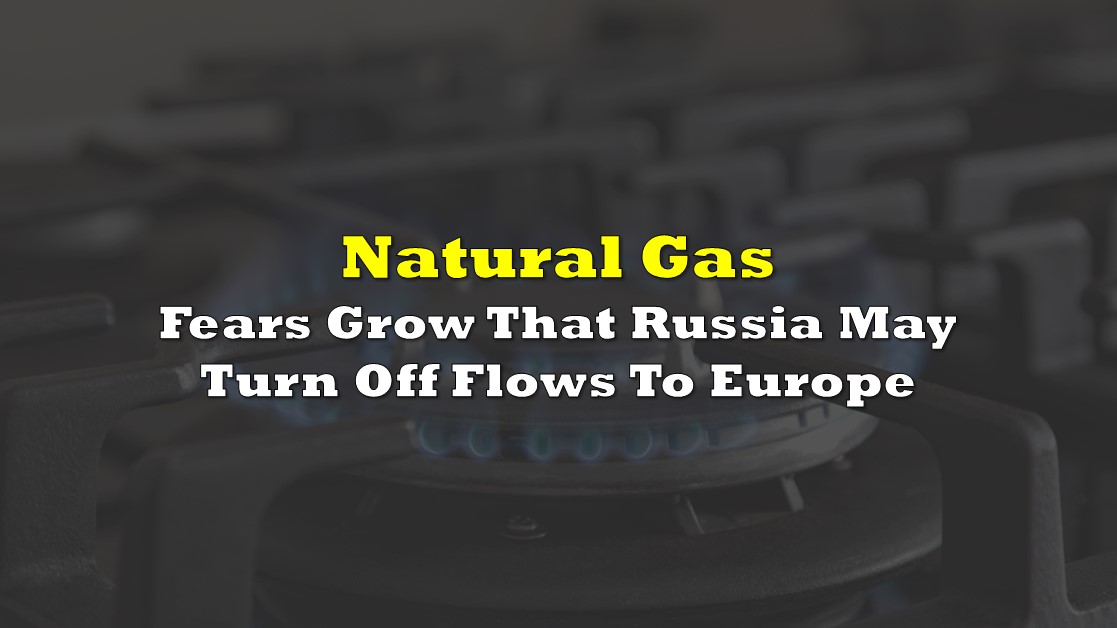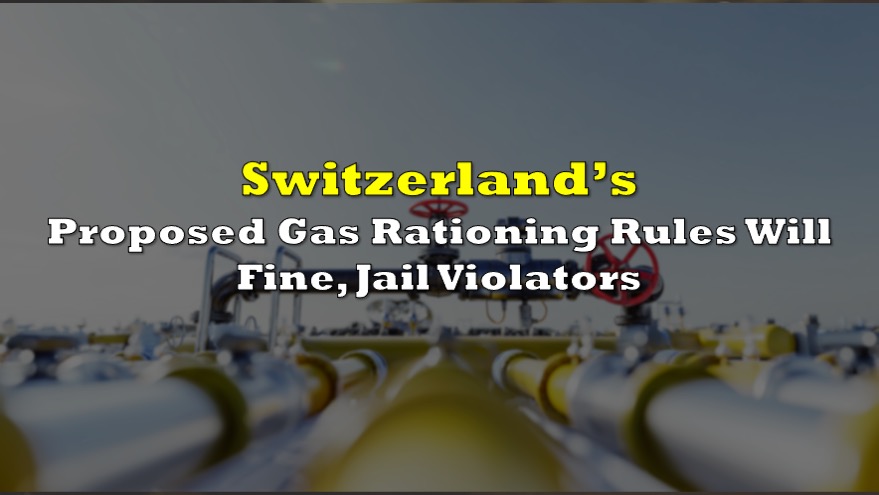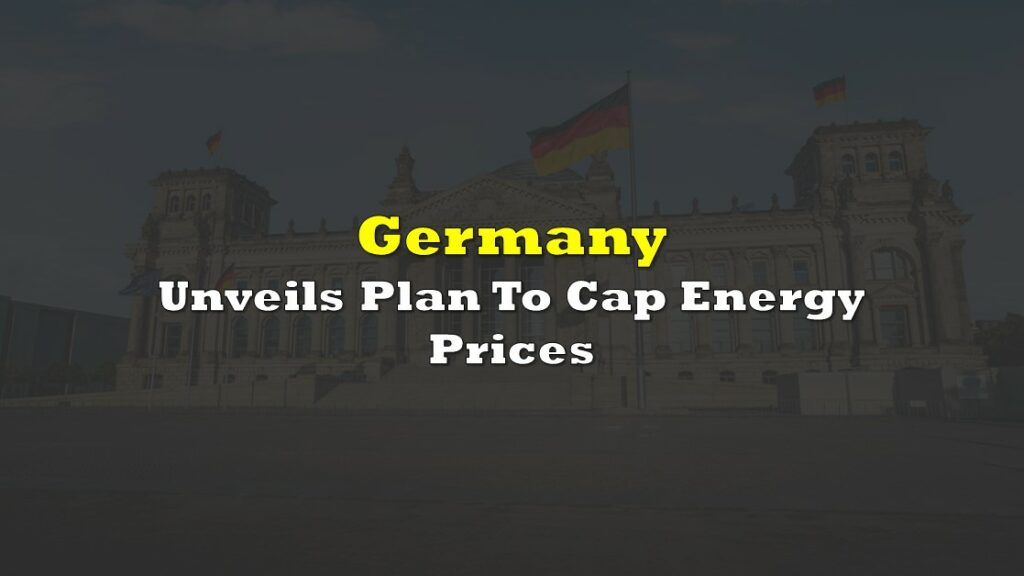Energy security fears continue to escalate in Europe, particularly related to natural gas. On July 1, Gazprom, Russia’s state-owned gas producer, announced plans to temporarily shut down the Nord Stream 1 natural gas pipeline from July 11 to July 21 to perform annual maintenance.
Nord Stream 1 spans 1,224 kilometers from Portovaya Bay on the Russian coast to Lubmin, Germany. It has the capacity to ship about 5.9 billion cubic feet (Bcf) of gas per day.
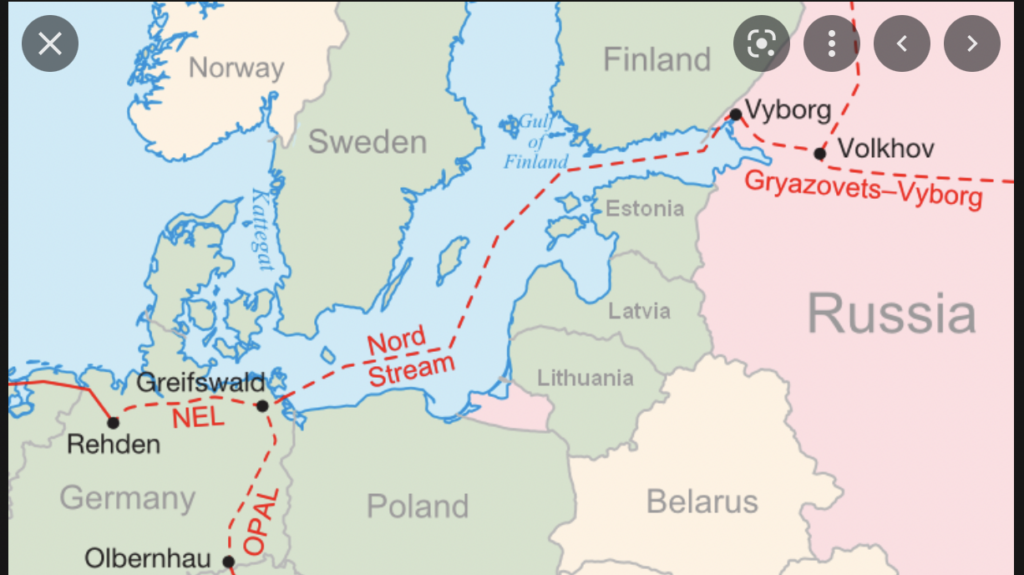
The great concern is that Vladimir Putin may decide not to restart the pipeline as a further act of revenge against European nations for supporting Ukraine in its war against Russia. Shutting the pipeline would make Europe’s efforts to fill underground natural gas storage tanks to prepare for winter a very difficult task.
In response, European natural gas prices have more than doubled in a month to 171 euros per megawatt-hour (Mwh), equivalent to an astonishing price of about US$51 per thousand cubic (Mcf). Gas prices in Europe spiked to around US$67 per Mcf when Russia invaded Ukraine. The benchmark natural gas price at the Henry Hub distribution point in the U.S. state of Louisiana trades at US$6.03 per Mcf.
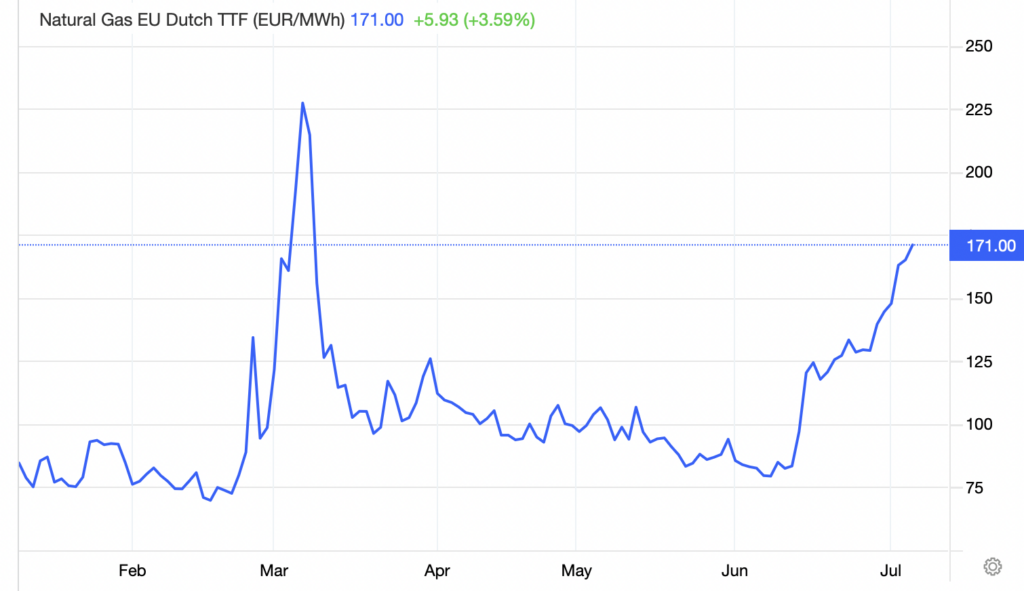
Russia has dramatically cut gas flows to Europe in 2022. Sometimes Gazprom has provided reasons for its actions, sometimes not.
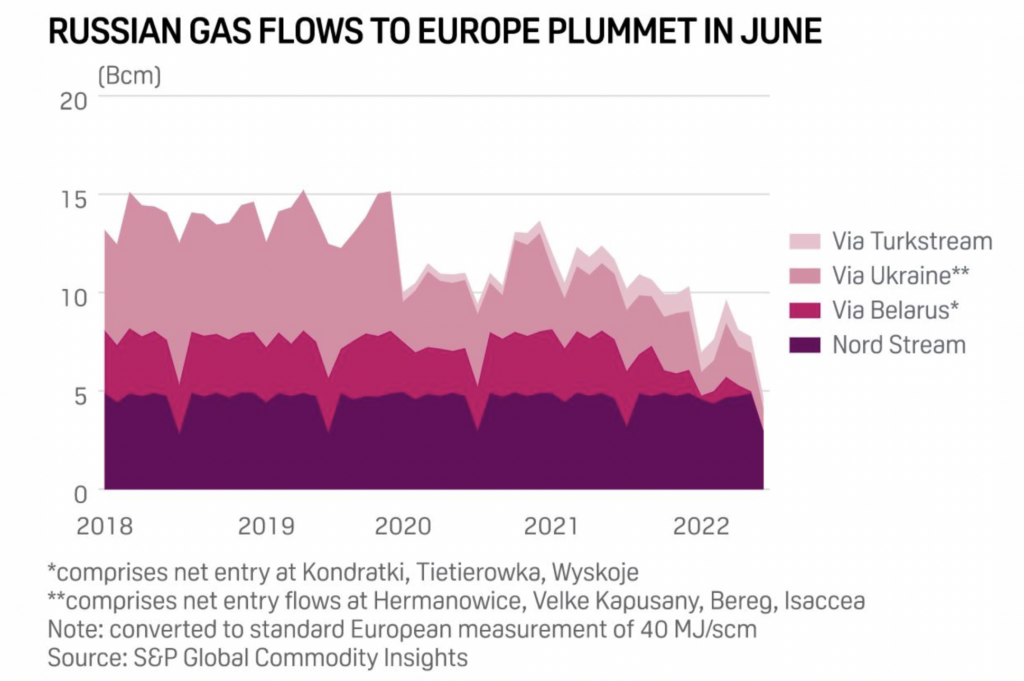
On June 14, Gazprom reduced its gas deliveries 40% to Germany through its Nord Stream 1 gas pipeline. The reason: Siemens delayed the return of turbines required to conduct repairs on the pipeline. Siemens had shipped the turbines to one of its Canadian facilities to perform the maintenance, but Canada barred the company from shipping the refurbished turbines out again because of sanctions it has imposed on Russia over its invasion of Ukraine.
Yesterday however it was reported by Reuters that the turbine would in fact be permitted to exit Canada, with the nation allowing it to be sent to Germany, at which point its fate is the responsibility of Germany, not Canada. “If it’s a legal question for Canada, I want to make clear that I’m not asking them to deliver it to Russia, but to bring it to Germany,” commented German finance Minister Robert Habeck to Bloomberg, as he pleaded with Canada to provide the turbine.
On June 15, Gazprom announced it would cut its Nord Stream 1 deliveries by a further one-third to just 2.4 Bcf daily beginning June 16. In addition, Gazprom cut its natural gas deliveries to ENI, a major Italian energy company. No reason was given for the action against ENI.
These actions follow Russia’s late April decision to stop exporting natural gas to Poland and Bulgaria because the countries refuse to pay for the gas in Russia rubles. In March, Russia unilaterally changed the terms of its supply contracts with “unfriendly countries” to require payment in the Russian currency.
Information for this briefing was found via Bloomberg, Reuters, Trading Economics and the sources mentioned. The author has no securities or affiliations related to the organizations discussed. Not a recommendation to buy or sell. Always do additional research and consult a professional before purchasing a security. The author holds no licenses.

